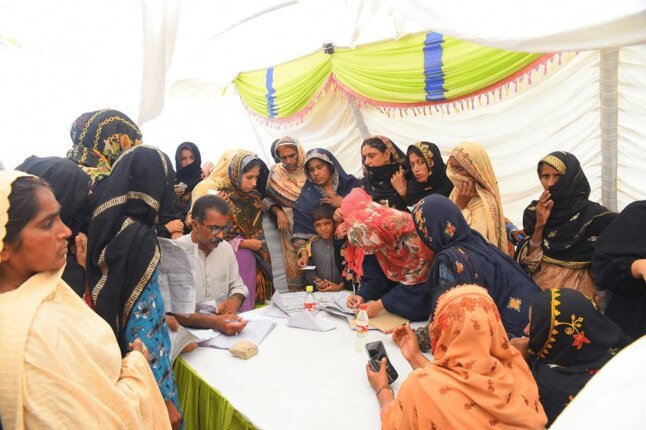Fatima Fertilizer, under its renowned Sarsabz Tabeer initiative, has taken a significant step forward by introducing a healthcare component to its rural empowerment program. In partnership with Mukhtar A. Sheikh Memorial Welfare Hospital (MASH) and the Government of Punjab, the initiative now addresses the often-overlooked healthcare needs of female farmers and underserved rural communities.
On June 26, the first Free Medical Camp was held at THQ Hospital Kehrorpaka in Lodhran, where over 400 patients received free medical consultations and medicines. A panel of expert doctors from various specialties—including gynecology, pediatrics, neurology, family medicine, ophthalmology, and nephrology—were present to offer their services.
The camp saw participation from more than 100 female farmers, underlining the strong connection between the initiative and the rural communities it serves. Senior officials including Multan Division Commissioner Amir Kareem Khan, Assistant Commissioner Ashraf Saleh Khan, and MASH’s Marketing Head Babar Khan attended the event. Representing Fatima Fertilizer, Brand Manager Noor Malik was also present.
“True empowerment starts with health,” said Rabel Sadozai, Director Marketing & Sales at Fatima Fertilizer. “By adding a healthcare pillar to Sarsabz Tabeer, we are addressing a core need that has long gone unmet. This collaboration with MASH and Punjab Government ensures dignity and support for the women who feed the nation.”
Previously focused on education, skills development, and financial empowerment, the Sarsabz Tabeer program now adds health as a fourth strategic pillar. Already, over 2,000 women across more than 15 cities have been trained through the program, with many launching their own home-based agribusinesses.
To broaden its reach, Fatima Fertilizer has also partnered with the Akhuwat Foundation, offering access to micro-financing, mentorship, and entrepreneurial guidance.
The new healthcare intervention underscores a growing commitment to the long-term socio-economic uplift of Pakistan’s rural women—and more medical camps are already in the pipeline.




